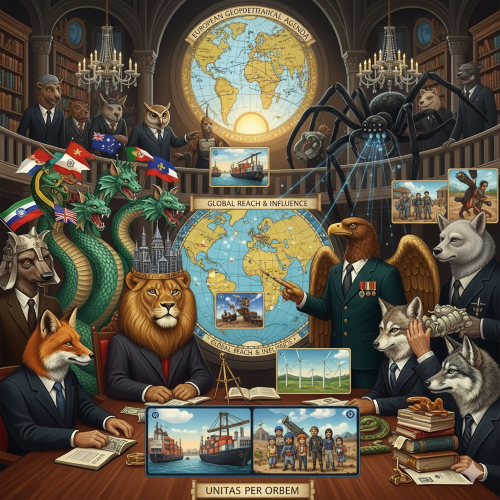What role does Africa play in Europe’s push to secure energy independence after shifts in global oil and gas markets?

Africa plays a critical and growing role in Europe's push for energy independence, especially after the major shifts in global oil and gas markets following the 2022 Russian invasion of Ukraine.
Europe is increasingly turning to Africa to diversify its energy sources, particularly for natural gas and green hydrogen, to reduce its heavy reliance on Russian fossil fuels.
This strategy is also driven by Europe's long-term green transition goals.
A Shift to African Natural Gas-
The immediate response to the energy crisis caused by the war in Ukraine was for Europe to find alternative sources of natural gas to replace Russian pipeline supplies. Africa, with its vast reserves and relative geographical proximity, emerged as a key solution.
-
Existing and New Infrastructure: Countries in North Africa, such as Algeria, have long-standing pipeline connections to Europe (e.g., to Italy and Spain). These existing links have been quickly leveraged to increase gas flows. In West Africa, new projects are being expedited, such as the Grand Tortue Ahmeyim (GTA) project off the coast of Senegal and Mauritania. European leaders have flocked to these nations to secure new gas deals and push for the rapid development of Liquefied Natural Gas (LNG) terminals and pipelines to get gas to Europe.
-
The Trans-Saharan Gas Pipeline: There is renewed interest in long-stalled projects like the Trans-Saharan Gas Pipeline, which would transport gas from Nigeria, through Niger and Algeria, to Europe. While a massive undertaking, the geopolitical urgency has made such projects a more serious consideration for European policymakers.
-
LNG as a Key Component: European nations are significantly expanding their LNG import capacity by building new terminals and utilizing Floating Storage and Regasification Units (FSRUs). This infrastructure is crucial for receiving African LNG from countries like Nigeria, Mozambique, Angola, and Egypt, which have become increasingly important suppliers.
Green Hydrogen: A Long-Term Strategy-
Beyond traditional fossil fuels, Africa is central to Europe's long-term green transition and energy independence strategy. European leaders see the continent as a future hub for green hydrogen production.
-
Abundant Renewable Resources: Africa has vast and untapped potential for solar and wind energy, which are essential for producing green hydrogen through electrolysis. European countries and companies are investing in large-scale green hydrogen projects in nations like Morocco, Namibia, and Mauritania. These projects are primarily designed to produce hydrogen for export to Europe, which can then be used to decarbonize industries like steel, chemicals, and shipping.
-
Geopolitical Competition: This push for green hydrogen also serves to counter the influence of other global powers. By investing in African renewable energy projects, Europe aims to secure a direct, long-term supply of clean energy and build partnerships that can compete with the investment models of rivals like China and the United States.
The Broader Geopolitical Context-
The role Africa plays in Europe's energy strategy is not just about securing resources; it's about reasserting political influence and control.
-
Shifting Power Dynamics: The energy crisis has given Africa newfound leverage in its relationship with Europe. African leaders are aware of Europe's urgent need for new energy sources and are using this to negotiate for better terms on trade, investment, and development aid.
-
A "New" Partnership Narrative: In response, European leaders are actively promoting a narrative of "mutually beneficial partnership" and "sustainable development." They are framing their energy projects as a way to help Africa with its own energy transition and economic development. However, critics argue that these partnerships often prioritize European needs over Africa's, risking a new form of extractive neocolonialism where Africa remains a supplier of raw materials and energy for Europe's consumption.
-
Migration and Security Linkages: European energy interests in Africa are also closely linked to issues of migration and security. By fostering economic stability through energy projects and creating jobs, Europe hopes to address some of the root causes of migration. Furthermore, European military and security partnerships are often used to ensure the stability of regions where European energy assets are located, thereby protecting investments and supply chains.
- Questions and Answers
- Opinion
- Motivational and Inspiring Story
- Technology
- Live and Let live
- Focus
- Geopolitics
- Military-Arms/Equipment
- Sicherheit
- Economy
- Beasts of Nations
- Machine Tools-The “Mother Industry”
- Art
- Causes
- Crafts
- Dance
- Drinks
- Film/Movie
- Fitness
- Food
- Spiele
- Gardening
- Health
- Startseite
- Literature
- Music
- Networking
- Andere
- Party
- Religion
- Shopping
- Sports
- Theater
- Health and Wellness
- News
- Culture

